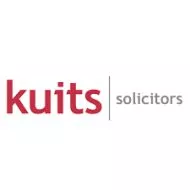The Economic Crime and Corporate Transparency Act 2023 (ECCTA) has reformed the law on corporate criminal liability for economic crimes, in particular expanding the scope of the identification doctrine.
The identification doctrine is the legal test for deciding whether the actions of a natural person can be regarded as those of a company, making a company criminally liable for the actions of that natural person.
The identification doctrine developed through case law and for a company to be criminally liable for an economic crime, requires that the natural person committing the economic crime is senior enough in the company to be the "directing mind and will" (i.e. an officer) of the company.
The reform under ECCTA (which came into force in December 2023) creates a statutory test for the identification doctrine setting out how to establish whose actions a company will be criminally liable for and expands this beyond the position prior to the ECCTA reforms to include "senior management" rather than it being limited to officers.
The intention is that this shift to a statutory test will bring with it legislative certainty and proportionality to ensure that the senior management of a company are within the scope of the regime and are deterred from using their authority granted by the company to commit economic crimes.
Following the reform a company will now be found criminally liable where a senior manager who was "acting within the actual or apparent scope of their authority" commits one or more of the economic crime offences specified in Schedule 12 of ECCTA (including a wide range of economic crimes such as bribery and money laundering), or attempts or conspires to commit any of those offences.
The definition of "senior management" in ECCTA replicates the definition used in the Corporate Manslaughter and Corporate Homicide Act 2007 and looks at the role and responsibilities of the individual within the organisation and the level of managerial influence that they have in it (as opposed to the individual's job title) to establish whether when committing the crime the member of senior management was "acting within the actual or apparent scope of their authority".
If found guilty, a company will be strictly liable for the economic crime and the statutory defence of reasonable procedures will not be available to the company unlike the new criminal offence being introduced under ECCTA of failing to prevent fraud.
Currently the reform to corporate criminal liability only applies to economic crimes however a further reform has been proposed by the secretary of state which would extend the scope to all criminal offences committed by senior management.
The reform can be considered to be closing loopholes that large organisations were previously able to exploit and creating equality between smaller and larger companies. Historically it was easier to prosecute small companies for economic crimes and succeed because their simple management structures meant that the "directing mind and will" of the company was more obvious or easier to identify whereas large companies with complex ownership structures were avoiding prosecution for economic crimes because those individuals in senior management positions were not seen as meeting the common law requirement of being the "directing mind and will" of the company.
The senior manager in question must commit an offence under UK law but the statutory test for the identification doctrine will apply to corporations and partnerships whether registered in the UK or under similar arrangements overseas mainly because the UK Government has found that there is clear evidence that corporate structures in many jurisdictions are being used by criminals to conduct economic crimes such as bribery, fraud and money laundering.
Directors and owners should take time to consider the management structure of their organisation and where individuals sit within the organisation to identify which senior managers will fall within the scope of the reformed identification doctrine and to put in place systems, training, policies and procedures and audit processes to seek to minimise the risk of the organisation being found criminally liable for the actions and criminal activity of an individual in "senior management".
The content of this article is intended to provide a general guide to the subject matter. Specialist advice should be sought about your specific circumstances.
We operate a free-to-view policy, asking only that you register in order to read all of our content. Please login or register to view the rest of this article.


